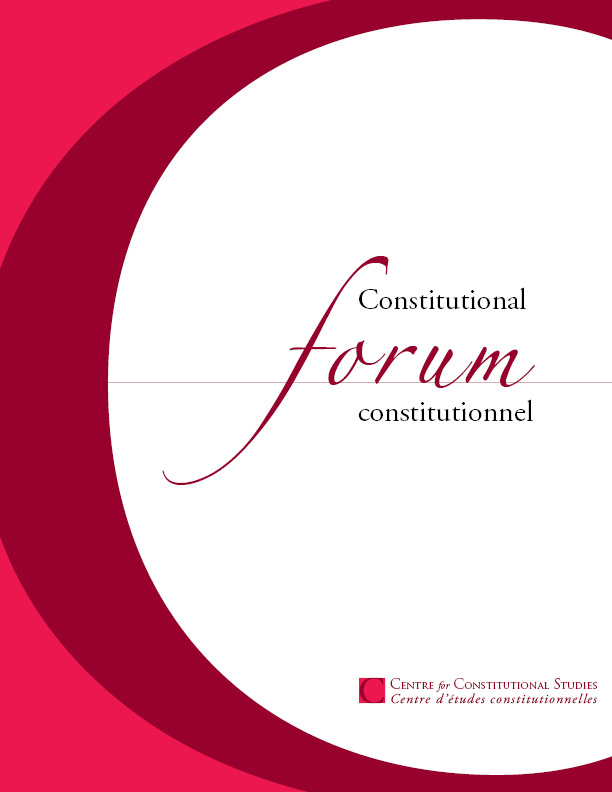THE CHARTER REVOLUTION: IS IT UNDEMOCRATIC?
DOI:
https://doi.org/10.21991/C9995RAbstract
A new book on the Canadian Charter of Rights and Freedoms by two professors from the University of Calgary, F.L. Morton and Rainer Knopff, is entitled The Charter Revolution and the Court Party.1 By the “Charter revolution” the authors refer to the active law- making role assumed by the Supreme Court of Canada since the adoption of the Charter of Rights in 1982.2 By the “Court Party” they refer to a cluster of interest groups promoting Charter rights through litigation.3 The thesis of the book is that these groups have been successful in obtaining changes in the law from the Supreme Court of Canada that could not have been achieved in the representative legislative assemblies. That, they argue, is wrong because it is “undemocratic.”4
I agree that there has been a Charter revolution. I also agree that there is a Court Party, but I will argue that the cluster of interest groups using litigation as their strategy is much broader than the authors acknowledge. I also agree that the effects of these two phenomena have not been wholly beneficial, but I argue that, on the whole, the result is one that enhances rather than usurps a democratic dialogue.
Downloads
Published
Issue
Section
License
Authors who publish with Constitutional Forum constitutionnel grant the journal the right of first publication, and agree to license the work under an Attribution-NonCommercial-NoDerivs (CC BY-NC-ND) that allows others to share the work for non-commercial purposes, with an acknowledgement of the work's authorship and initial publication in this journal, as long as no changes are made to the original work. Please use this format to attribute this work to Constitutional Forum constitutionnel:
"First published as: Title of Article, Contributor, Constitutional Forum constitutionnel Volume/Issue, Copyright © [year], Publisher"





